Assessments play a crucial role in predicting employee performance. By administering tests and structured interviews, organizations can gain valuable insights into candidates' abilities, behaviors, and motivations. They can help answer important questions such as how quickly candidates can learn new skills, how they interact with others, what environments motivate them, and how their values align with the organization's. By offering a data-driven approach to talent selection, assessments empower organizations to identify and hire candidates with the highest potential for success.
Let’s explore six real-life case studies that demonstrate the effectiveness of assessments in predicting performance!
Market research firm improved productivity for their Research Associates with skills-based assessments
To combat high turnover rates among call center employees, a market research firm wanted to use the Criteria Basic Skills Test (CBST) to hire research associates. Skill assessments like the CBST are specifically designed to evaluate an individual's proficiency and trainability required for successful job performance. The CBST, a 20-minute assessment, measured the literacy and math skills of the associates.
The company first tested out the assessment on their existing employees, and found that employees who passed the test demonstrated 63% greater productivity compared to those who did not pass. .
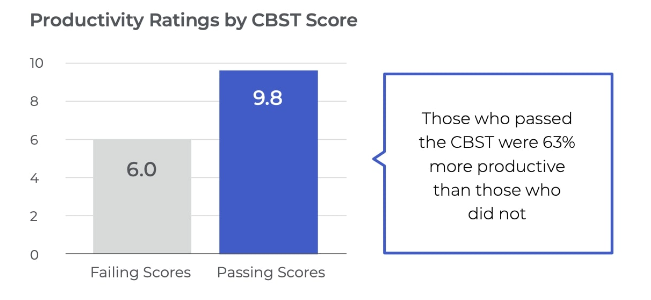
Consulting firm improves job performance for Analysts by using cognitive and personality assessments
With the desire to drive better job performance and retention among entry-level analysts, a consulting firm implemented the Criteria Cognitive Aptitude Test (CCAT) and the Employee Personality Profile (EPP) during the analyst hiring process. Cognitive and personality assessments like the CCAT and EPP are effective predictors of employee job performance due to their ability to measure critical thinking, problem-solving skills, and behavioral traits relevant to specific roles. The CCAT measured critical thinking and problem-solving abilities and the ability to learn quickly, while the EPP evaluated different traits and matched their profiles to various job types.
The results revealed a strong correlation between high CCAT scores and overall job performance. Additionally, high CCAT scorers were 7.6 times more likely to receive multiple promotions compared to those with lower scores. By leveraging these assessments, the firm was able to identify top-performing analysts and make informed decisions to drive success within their organization.
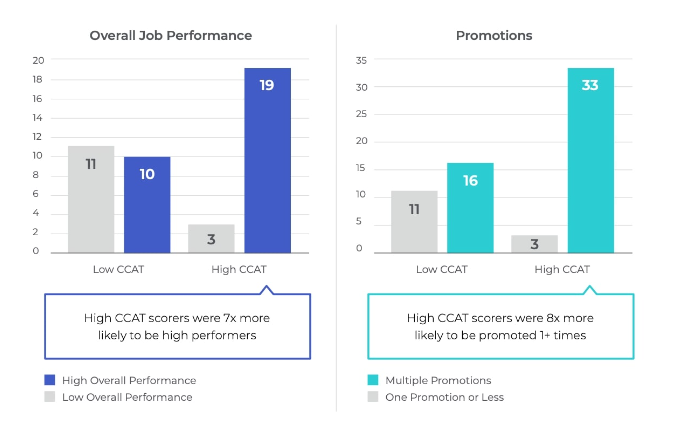
Credit Union improves their quality-of-hire with skills testing
To enhance the quality of hire for teller positions, a Western US credit union leveraged the CBST to assess prospective candidates. The credit union compared the CBST scores with job performance ratings and found that those who received high scores on the assessment were 49% more likely to receive good performance rankings from company management. This correlation between CBST scores and performance highlights the effectiveness of using the assessment to identify top-performing candidates. By implementing a skills assessment in their hiring process, the credit union improved the quality of their hires, leading to heightened productivity and a reduction in turnover.
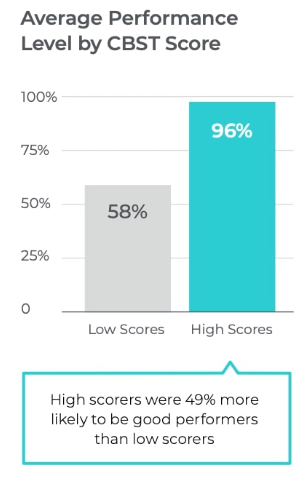
A federal regulatory authority predicts job performance and career advancement using a personality assessment
A federal regulatory authority leveraged the Workplace Alignment Assessment (WAA) to identify committed and long-term employees while evaluating its impact on key organizational outcomes such as job performance, tenure, and employee movement. The WAA serves as a valuable tool for organizations to identify individuals who are more likely to demonstrate commitment, job satisfaction, and willingness to go the extra mile in their work.
The results revealed clear correlations between employees' WAA scores and job performance, with those scoring 'Above Average' rating 17% higher than those with 'Below Average' scores. This underscores the effectiveness of the WAA in accurately predicting and fostering higher levels of job performance within the organization.
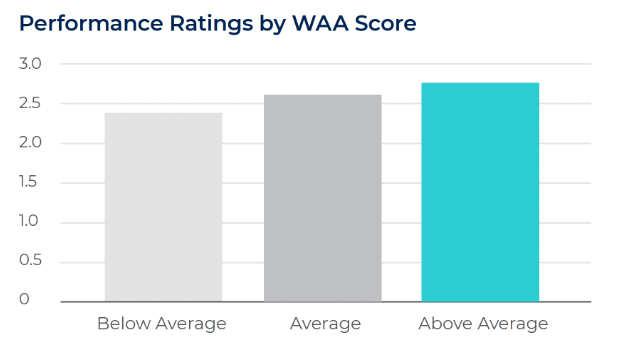
Family health clinics use skills and personality assessments to predict performance of patient-facing staff
A network of family healthcare clinics aimed to enhance their quality of hire and boost retention for patient-facing staff. To achieve this, the clinics implemented skills and personality testing across all locations, utilizing the CBST and Customer Service Aptitude Profile (CSAP).
The results were remarkable, as the CBST scores demonstrated a strong correlation with performance. High-scoring employees received performance ratings that were 53% higher than their low-scoring counterparts. The results highlight the effectiveness of the CBST and CSAP assessments in identifying top-performing candidates and improving the overall quality of hire within the clinics.
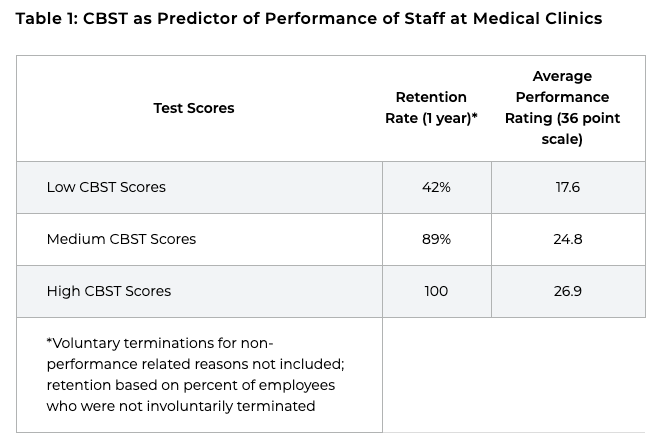
Primary care clinics increase productivity and patient satisfaction by simply adding assessments to their recruitment process
A Texas-based network of primary care clinics wanted to optimize the performance of their patient-facing workforce to deliver the best possible experiences for patients. To achieve this, they implemented the CBST and the CSAP to assess job candidates.
The results revealed correlations between assessment scores and overall performance. Notably, medical assistants who received above average scores on the CBST were consistently rated significantly higher in every single performance category compared to those who received below average CBST scores. This highlights the effectiveness of using the CBST and CSAP assessments in identifying top-performing medical assistants and ensuring excellence across all aspects of patient care.
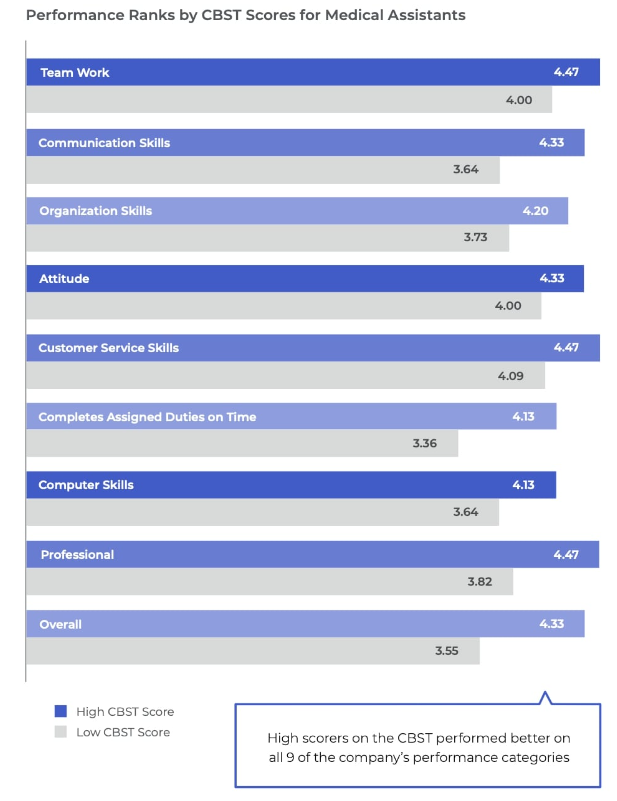
---
Assessments provide valuable insights into candidates' skills, abilities, and fit for specific roles, enabling organizations to make informed hiring decisions. By accurately assessing candidates' capabilities and fit, organizations can build high-performing teams, reduce turnover, and create a more engaged and productive workforce. With assessments as a cornerstone of their recruitment strategy, organizations can unlock the potential of their talent and drive success.





